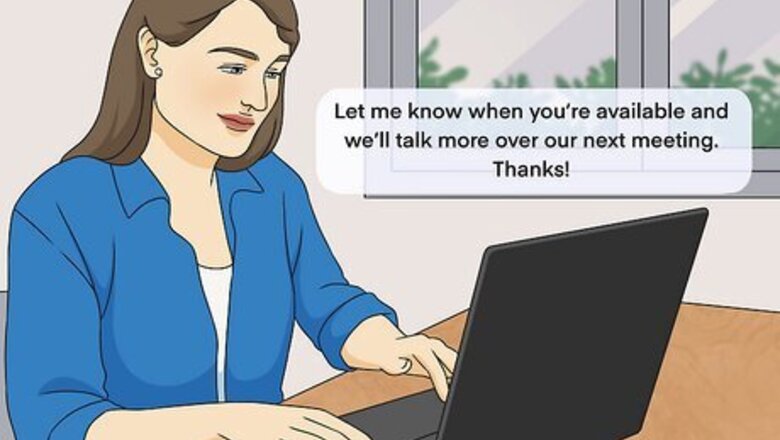
views
Alternatives to “Thanks in Advance”
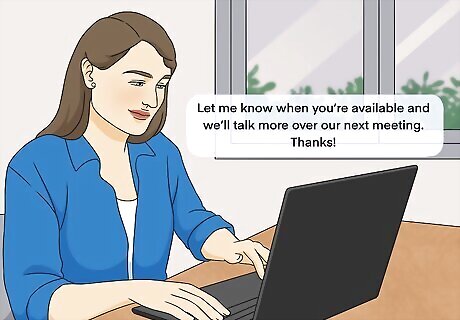
“Thanks!” A simple “Thanks” or “Thank you” can go a long way—and if you’re worried about sounding too presumptuous with “Thank you in advance,” saying “Thanks” removes that expectancy from the message. It may be a bit vague in some cases, however, so consider specifying what you’re thanking the other person for. Example: “Let me know when you’re available and we’ll talk more over our next meeting. Thanks!” In casual emails, you could try variants like "Thanks again!" or "You're the best!" You could also try an alternative like, “In any case, thank you.” It expresses appreciation even if the person you’re writing to can’t offer additional help. Example: “I’d be a huge help if you could review these reports, but no worries if you’re swamped today. In any case, thank you!”

"Many thanks." "Many thanks" is slightly more formal than a basic "Thank you," which can be helpful in professional emails—especially if you're communicating with a client, supervisor, or someone you don't know very well. It's also a simple, polite thing to say, making it appropriate for any workplace communication. Example: "Could you take point on scheduling a team meeting for tomorrow morning? Many thanks!"

“Could you…?” or “Do you think you’d have time to…?” One of the best alternatives to “Thank you in advance” is a call to action. Explain what you want the other person to do and then follow up by asking them directly if they’ll be able to do it. This gives the recipient a way out if they can’t help while also making it clear what you need from them. Example: “Apologies for the short notice, but do you think you’ll have time to finish that presentation today?”
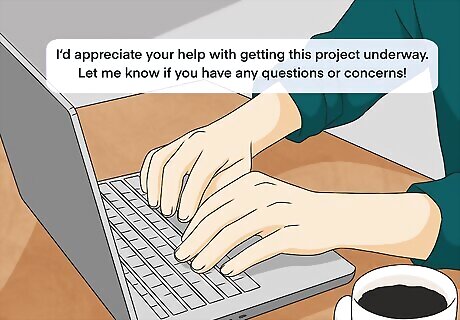
“I would appreciate your help with…” Use this phrase when the recipient has already done something to help you. Alternatively, you could use it if you’re asking for help and feel confident that they’re going to agree (usually because you’ve already discussed the matter before or have a good working relationship). Example: “I’d appreciate your help with getting this project underway. Let me know if you have any questions or concerns!”
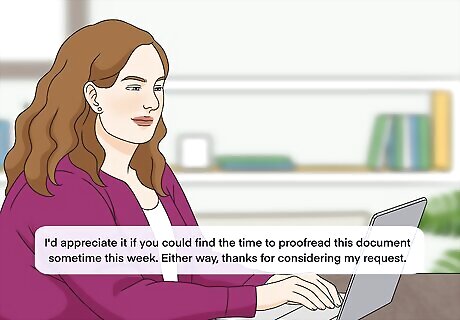
“Thanks for considering my request.” This is a solid alternative that doesn’t make any assumptions about the recipient; it simply asks them to give some thought to whatever you’re asking. However, be sure to mention if you’re looking for a response—because the phrase doesn’t necessarily prompt the recipient to respond by itself. Example: “I'd appreciate it if you could find the time to proofread this document sometime this week. Either way, thanks for considering my request.”

“Thank you for your attention to this matter.” This phrase has a formal, businesslike tone—and it’s also more insistent. Use it if you’re a manager making requests of the people you supervise; when used by colleagues (or an employee to their manager), it may sound a little too demanding. It works best with urgent or important requests. Example: “We’re looking to have this finished by Thursday, so please send in your documents by then. Thank you for your attention to this matter.”

“Any assistance you could provide would be appreciated.” This phrase expresses gratitude to the recipient without making assumptions about how much help they can give you, maintaining that you’re thankful regardless. You can also swap out “assistance” with other words like “Any guidance,” “Any insight,” or “Any expertise you could provide…” for the same effect. Example: “I was wondering if you could give me your thoughts on the latest proposal. Any guidance you could provide would be appreciated!” There are also plenty of ways to change the phrase if you don’t want to say it the same way. For example, you could say, “Thank you for any assistance you can provide” instead.

“I’m grateful for any support you can offer.” If you’re uncertain about how much help the recipient can give you, use this phrase to show them that you’ll appreciate any level of support (even if it’s not as much as you were originally hoping for). It implies you’re open to all forms of help—big and small. Example: “Would you be willing to contribute your expertise to this project? I’m grateful for any support you can offer.” You could also say, “Thanks for any help you can offer” when you want to recognize the recipient might only be able to help in a limited way (but still express appreciation).
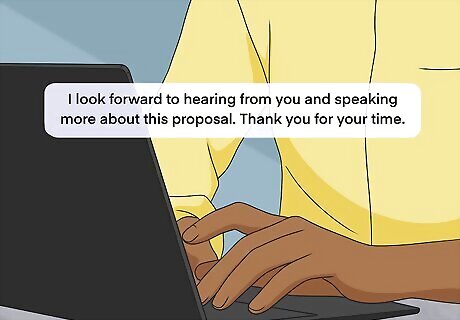
“Thank you for your time.” This is a classic, professional sign-off that works across a variety of business-related emails—whether you’re making a request, introducing yourself, following up after an interview, or sending some other message. Use it to thank someone for reading your message (and recognize that their time is valuable). Example: “I look forward to hearing from you and speaking more about this proposal. Thank you for your time.”

“Your help in this matter would be greatly appreciated.” This is another phrase that works well when you need to make an urgent or important request. It conveys a sense of significance while still thanking the recipient for whatever help they can give you. Example: “I’ve forwarded some questions from a client that need to be answered. Your help in this matter would be greatly appreciated!” If you’re writing a formal email, you could say, “Your cooperation in this matter would be highly appreciated” instead. It’s a bit more serious and insistent (but still polite).
What does “Thanks in advance” mean?

“Thanks in advance” expresses gratitude for an expected action or favor. “Thanks in advance” is a statement that’s often used in professional emails and written communication at work. It’s normally used when making requests; in other words, it implies that you expect the recipient to do something while simultaneously offering thanks for fulfilling the request. “Thank you in advance” is slightly more formal than “Thanks in advance,” but both are acceptable to use in the workplace. Consider using “Thank you in advance” when it’s important for you to sound professional and “Thanks in advance” when communicating with someone you already have a good rapport with.
When should you use “Thanks in advance”?

“Thanks in advance” works best with small requests and team projects. Some people feel that “Thanks in advance” sounds rude since it assumes the recipient is going to help before actually getting confirmation. However, it remains a pretty common expression in the workplace; in reality, there are certain situations where it’s acceptable to use and others where it isn’t ideal. Try using it when you’re: Making a small or routine request. If your request is something that’s already part of the recipient’s regular duties (or is small and very easy for them to accomplish), it’s acceptable to use “Thanks in advance.” Working on a team project. When working in a team, all team members are generally expected to contribute, which is why it’s not too demanding to ask a team member to do something and thank them in advance. Giving instructions to a team member. If you’re a team leader (or a supervisor with employees), it’s acceptable to give team members instructions and expect them to follow through.

Use an alternative phrase to avoid sounding presumptuous or rude. Sometimes, saying “Thanks in advance” might come off as too bossy, even if you’re not trying to be. Consider the context of the situation and what kind of request you’re making before wording your email. Generally, it’s a good idea to avoid saying “Thanks in advance” when you’re: Making a big request. If you need to ask for something significant—especially if it’ll take a lot of effort or it’s outside the recipient’s normal duties—try a less demanding alternative phrase instead. Communicating with a supervisor. It’s better to make a polite request without assuming your manager or supervisor will automatically say “yes.” Try asking if they can help you and thanking them for their time. Speaking with a client. If you have clients, they should usually be the ones making requests of you—so if you have a request for them, use an alternative phrase that’ll sound less expectant.


















Comments
0 comment